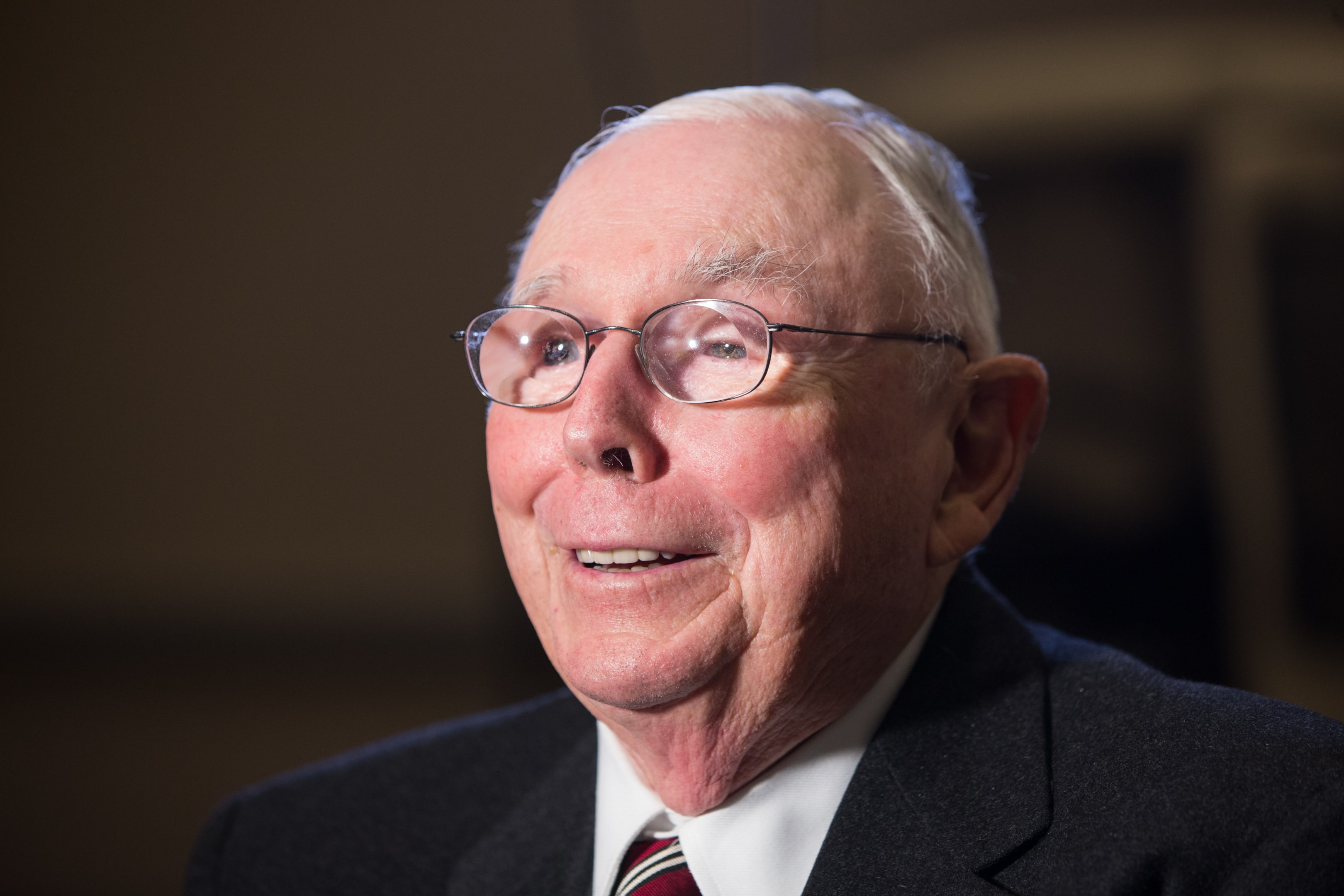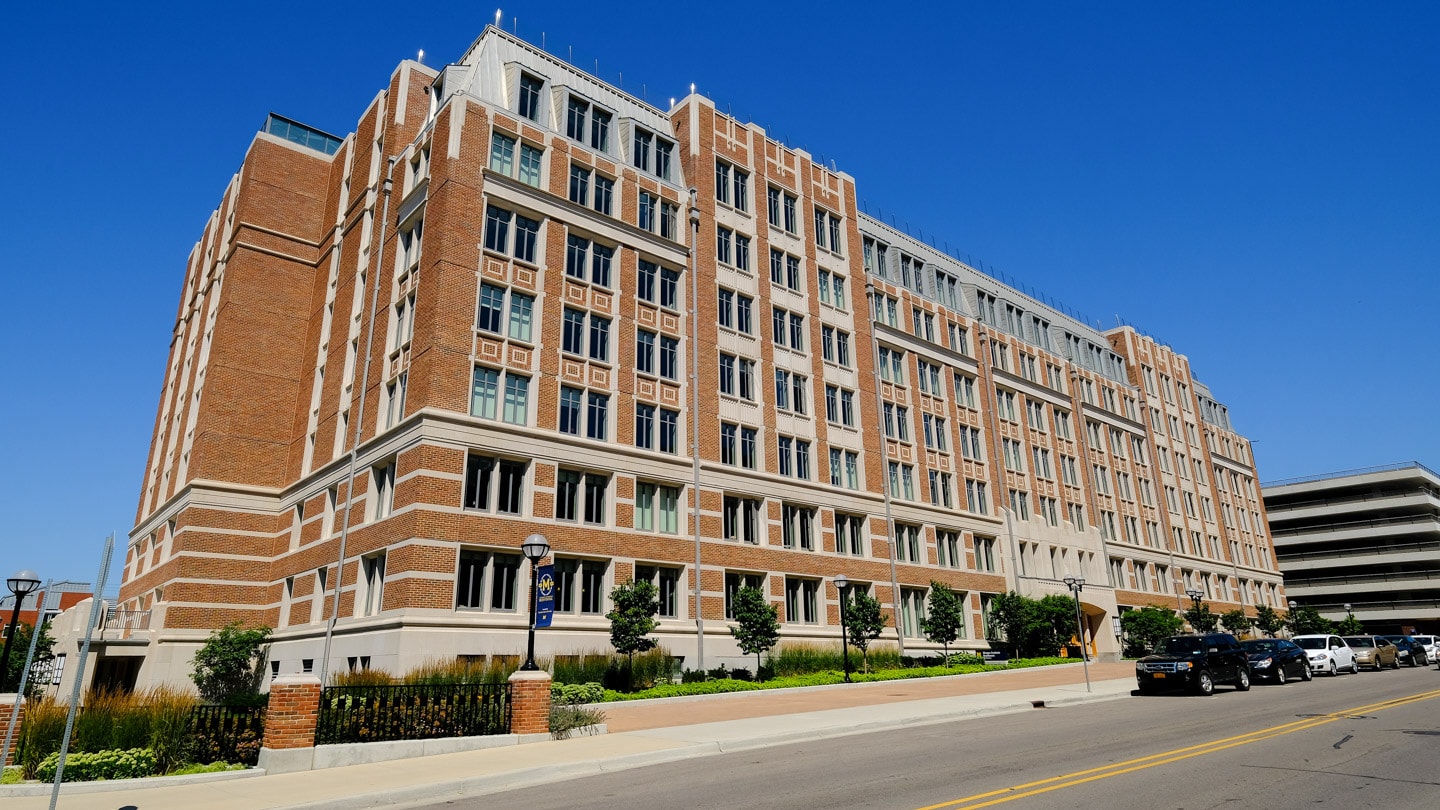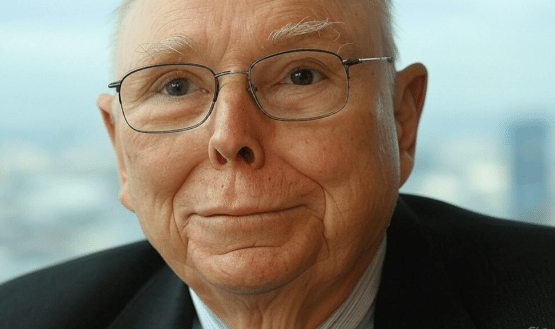On this Page:
Charlie Munger was a prolific investor whose career in entrepreneurship served as an inspiration for millions of people. He served as the Vice Chairman of the prominent multinational holding company Berkshire Hathaway. His vital contributions to ensure the seamless success of the company earned him a reputation as a wise and pragmatic investor, as well as being the “right-hand man” of Warren Buffett, Berkshire’s CEO. Buffett once famously said, “I probably haven’t talked to anyone on Wall Street one hundredth of the times I speak to Charlie.“

Over the past few years, Munger’s cordial relationship with Buffett and his various donations to academia have ignited public interest in his financial standing. Surprisingly, the nonagenarian was not as wealthy as many expected he was due to his consistent commitment to charity. At the time of his death in 2023, Forbes estimated his net worth at $2.6 billion, a fraction of Warren Buffet’s estimated net worth of $119 billion.
In spite of his heavy investment in charitable initiatives, Munger refused to sign “The Giving Pledge.” This project was co-founded by Buffett, Bill Gates, and his ex-wife, Melinda, to encourage their fellow billionaires to donate a significant portion of their fortunes to charity. Nevertheless, Munger’s refusal to sign the pledge has not altered his status as a great philanthropist. Munger stated that he did not sign the pledge because he had already violated it by giving a significant portion of his wealth to his children.
Munger is widely respected as a mentor to aspiring investors and entrepreneurs. His investment philosophy has been adopted by many who aim to thrive in their various financial endeavors. Munger, alongside his friend and business partner Buffett, was featured in the book titled “Seeking Wisdom: From Darwin to Munger.” The author, Peter Bevelin, in a 2007 interview, said the duo’s investment prowess inspired him to write the book.
Sadly, Charlie Munger passed away on November 8, 2023, leaving a massive void at Berkshire Hathaway. In an official statement by Berkshire, Munger was said to have died peacefully at a hospital in California. Munger was 99 years old and would have turned 100 on January 1, 2024.
Breaking Down Jerome Powell’s Net Worth in 2025
| Asset or Income Source | Contribution to Net Worth |
|---|---|
| Berkshire Hathaway Class A Stock | 4,033 shares worth $546,869 per share at time of death |
| Total Net Worth | $2.6 billion |
Charlie Munger’s Early Life
Charles Thomas Munger was born on January 1, 1924, in Omaha, Nebraska. While growing up, he worked at Buffett and Son; a grocery store owned by Warren Buffett’s grandfather. Munger’s father, Alfred, was a lawyer.
An interest in math propelled him to pursue a degree in mathematics at the University of Michigan. While at this institution, he joined the nation’s oldest national Greek fraternity, the Sigma Phi Society. However, amid the intensity of World War II, he was forced to abandon his program to join the U.S. Army Air Corps. There, he trained as a meteorologist at Caltech in Pasadena, California, and was eventually promoted to the position of second lieutenant.
Shortly after the war, Munger returned to the academic world. He leveraged the opportunity provided in the GI Bill, formerly referred to as the Servicemen’s Readjustment Act of 1944. Before its discontinuation in 1956, this bill provided a range of benefits to returning World War II veterans. As one of the beneficiaries, Munger was able to use the GI Bill to attend Harvard Law School, his father’s alma mater.
Initially, the dean of admissions at Harvard Law School declined his application because Munger hadn’t completed his undergraduate program. Eventually, his application was reconsidered after Roscoe Pound, the former dean of the law school and a friend of the Munger family contacted the admission officer. Munger performed well during the program and graduated with a Juris Doctor in 1948.
Revolutionizing Berkshire Hathaway
Upon his graduation, Munger started to follow the path of his father. He joined a law firm, Wright and Garrett. The firm later transitioned into Musick, Peeler and Garrett. While trying to establish himself in the new field, Munger met Warren Buffett in 1959 through Dr. Edwin Davis and his wife, Dorothy. The pair met at a dinner in Omaha, Nebraska. The pair spoke about their partnership and success in the 2023 Berkshire Hathaway annual meeting shortly before Munger passed.
Prior to their meeting, Dr. Edwin Davis had already mentioned Munger to Buffett. Davis told Buffett that he shared the same financial philosophy with Munger. With this, Buffett began to admire Munger and pleaded with Davis to meet him. The opportunity arrived in 1959 when Munger went to Omaha for his father’s burial.
At the meeting, Buffett attempted to persuade Munger to dump his career in law and pivot to investment management. At first, Munger refused Buffett’s advice and consequently co-founded a law firm; Munger, Tolles, and Olson LLP where he practiced as a real estate attorney. The firm still exists today and it even still carries Munger’s name.
Later, Munger began to reconsider the advice given to him by Buffett. Eventually, he gave up his career in the law field and decided to focus on investment management. He cut his teeth in the new sector by collaborating with newspaper billionaire and former University of Michigan classmate, Frank Otis Booth. The duo focused on real estate development.
After much contemplation, Munger finally decided to join Buffett at Berkshire Hathaway as Vice Chairman in 1978. The role positioned Munger as Buffett’s right-hand man and top advisor. He detailed the partnership in-depth in a recent documentary made by Life Stories.
Since his appointment, Berkshire Hathaway continued to thrive. As its vice chair, Munger helped shift the investment policies of the firm. As Buffett’s second-in-command, he transformed Berkshire’s investment practices from solely focusing on buying failing companies for a low price to buying successful companies that were likely to become more successful in the future. This approach is known as “value investment.”
The flagship assets of Berkshire include what Buffett often refers to as Berkshire’s “Four Giants.” They are the four investments that constitute a significant portion of Berkshire’s value and are known as Berkshire Hathaway Energy, Apple, Insurance Float, and Burlington Northern Santa Fe Corporation.
Warren Buffett’s “Four Giants”:
📝 Insurance
🍏 $AAPL
🚂 BNSF
🔌 Berkshire Hathaway Energyh/t @andyklatt pic.twitter.com/qFfy6Q3qyg
— Brandon Van Zee (@BrandonVanZee) May 6, 2022
Munger also served as the chairman of Wesco Financial Corporation, now a wholly-owned subsidiary of Berkshire Hathaway. Through Wesco, the former real-estate attorney managed an equity portfolio which included top companies like Coca-Cola, Wells Fargo, Procter & Gamble, Kraft Foods, U.S. Bancorp, and Goldman Sachs. These investments were driven by his great belief in the potential of these stocks to yield good returns and continued to grow under Munger’s leadership.
With his wealth of experience in investment management, Munger transitioned Berkshire from a struggling textile producer to a colossal multinational holding company. His views were essential in helping Buffet transition Berkshire’s investment philosophy into the modern era.
In a letter to shareholders in 1989, Buffett cited Munger as the brain behind the company’s decision to stop its “cigar-butt” approach to value investment. The cigar butt is a term used to describe the acquisition of a struggling company at a discounted rate in a bid to gain the little profit left (the “free puff”) in the business. Munger helped Buffett realize that growth stocks with great potential can be infinitely more profitable.
Before meeting Munger, Buffett commenced his investment career as a cigar-butt investor. He admitted that Munger was swift in understanding the flaws in the investment approach. According to him, “Charlie understood this early; I was a slow learner.”
Charlie Munger’s Generous Philanthropy
Just like Buffett, Munger is a generous giver. He has been donating to various academic and development initiatives since the early 1990s. During that time, he built a $13 million Munger Science Center at Harvard-Westlake School. The building is a two-story classroom and laboratory.
Apart from Harvard-Westlake School, Munger has also donated to Marlborough School in Los Angeles and the Polytechnic School in Pasadena. Munger donated to Stanford University as well. Around 2004, he donated 500 shares of Berkshire Hathaway Class A stock to the institution. The shares were worth about $43.5 million at that time.
Three years later, he also committed $3 million to the law school of the University of Michigan. The donation helped the institution to improve some of its architecture. In 2011, he donated another $20 million to the institution to help complete its $39 million renovation of the Lawyers Club housing complex. If that wasn’t enough, Munger decided to donate another $110 million to foster the building of its “state of the art” residence, housing 600 graduate students.

Later in 2014, Munger attracted attention after he donated $65 million to the Kavli Institute for Theoretical Physics at the University of California, Santa Barbara. In an interview, the billionaire said the project was developed so as to gather physicists to generate problem-solving ideas. A few years later, he made another hefty donation to the institution.
Then, he insisted that the university must commit the funds to the building of an undergraduate dormitory he designed. Munger’s insistence caused Dennis McFadden, an architect who participated on the university’s design committee, to resign from the project. This was in part due to the design, which would have placed 4,500 students in a single block, 11-story building, making it the largest student dormitory in the world.
Munger’s proposed design was heavily criticized by students, architects, and social media users as it would have crammed 8 or more students into each dorm with no windows and tiny personal spaces. Ground never broke on the project at UC Santa Barbara.
After a Billionaire Designed a Dorm, an #Architect Resigned in Protest https://t.co/NniZptRrtO #TechJunkieNews #design pic.twitter.com/Z3fVX9OdDO
— Tech Junkie (@techjunkiejh) November 2, 2021
Munger, through his family, also made a noticeable donation to Stanford’s Green Library restoration of the Bing Wing. He also contributed to the construction of a rotunda on the library’s second floor.
Charlie Munger: One of Crypto’s Biggest Critics
Just like Warren Buffett, Charlie Munger was another hardened critic of crypto. The two billionaires maintained a deep derision toward crypto and were not afraid to say it. Over the years, they lashed out at crypto assets, with Buffett labeling Bitcoin as a “rat poison squared.” Munger shares a similar view. He likened crypto to a venereal disease, adding that it is “disgusting and contrary to the interests of civilization.” He called for the full ban of every crypto asset across the world, saying he did not “welcome a currency that’s so useful to kidnappers and extortionists and so forth.”
Munger’s stance was that no responsible government should incorporate cryptocurrencies into the existing financial system. He believed nothing drove the value of crypto except speculation, labelling those who oppose this view as “idiots” who want to get rich quickly without engaging in real work. According to the Berkshire Hathaway vice chairman, crypto had no potential to attain the status of traditional currencies, which he claimed have helped man evolve “from a successful ape to a [successful] human.”
Despite tough enforcement actions against crypto in the U.S., Munger was still not satisfied. He felt the government was still too lenient in its approach, again emphasizing a call for a total ban and supporting other nations that ban crypto.
“It [crypto] isn’t even slightly stupid, it’s massively stupid, and of course, it’s very dangerous; the governments were totally wrong to permit it. And of course, I am not proud of my country for allowing this crap — well, I call it crypto shit. It’s worthless, it’s crazy, it’s not good, it’ll do nothing but harm, and it’s antisocial to allow it. I don’t think there is a rational argument against my position,” Munger said.
To further justify his call for a full clampdown on crypto, the billionaire referenced the FTX-Alameda Research implosion and its devastating impact on investors. He felt the industry was regulated with kid gloves and said it encouraged firms to create cryptocurrencies with predatory tokenomics.
Munger maintained that the crisis further reaffirmed his position that the industry is nothing but a gambling arena. In his op-ed published in the Wall Street Journal, the nonagenarian argued that crypto does not meet the criteria to be identified as a security, commodity, or currency.
“A cryptocurrency is not a currency, not a commodity, and not a security. Instead, it’s a gambling contract with a nearly 100% edge for the house, entered into in a country where gambling contracts are traditionally regulated only by states that compete in laxity.”
However, the crypto community, particularly well-known Bitcoin investors didn’t lose sleep over Munger and Buffett’s discontent with digital assets. In fact, they made fun of the duo’s perspectives on X and elsewhere. Many believed that Buffett and Munger were too old to truly understand the capabilities of crypto.
Does Charlie Munger Own Any Cryptocurrencies or NFTs?
Charlie Munger has never owned a portfolio that includes any blockchain-related assets. Prior to his death, Munger was interviewed by the Australian Financial Review. He said; “People who are getting in cryptocurrencies are not thinking about the customer. They are thinking about themselves.”
Munger said that “crypto is an investment in nothing, and the guy who’s trying to sell you an investment in nothing says, ‘I have a special kind of nothing that’s difficult to make more of.”
He also advised investors to stop exposing their wealth to the industry. “Never touch it. Never buy it. Let it pass by,” he said, adding investments in shares of companies are better.
Charlie Munger’s Net Worth – Our Verdict
At the time of his death, Charlie Munger’s net worth was estimated at $2.6 billion, composed of 4,033 shares of Berkshire Hathaway Class A stock. But Munger didn’t just coast in on Warren Buffet’s coattails. Even Buffet admits that Munger was absolutely essential in turning Berkshire into the colossus that it is today.
Warren Buffett stated “In reality, Charlie was the architect of the present Berkshire, and I acted as the ‘general contractor’ to carry out the day-by-day construction of his vision.” Despite Munger’s disdain for cryptocurrencies, you can’t argue that he was one of the most brilliant minds in the history of investing.
FAQs
What is Charlie Munger’s net worth in 2025?
Charlie Munger was worth roughly.
What happened to Charlie Munger’s wealth?
Charlie Munger is a generous philanthropist who has given a large portion of his net worth away to various charitable causes, institutions, and his children.
What percentage of Berkshire Hathaway did Charlie Munger own?
Charlie Munger owned just 4,033 shares of Berkshire Hathaway, worth just over $2 billion, when he passed but in 1996, the earliest available SEC disclosure form, revealed that he once owned 18,829 shares.
Who Is Warren Buffett’s best friend?
Charlie Munger was Buffett's best friend and right-hand man at Berkshire Hathaway for decades and decades.

